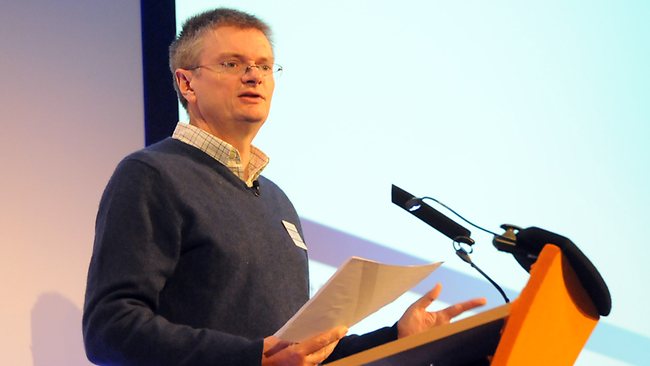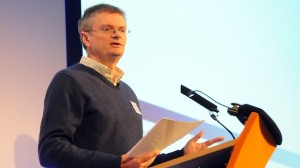London has long been known as a city where white men have largely run the show, although some say that changing. But is it in the legal market, which has seen dwindling female partnership numbers in recent years?
To celebrate International Women’s Day, the Lord Mayor of the City of London, Fiona Woolf, introduced the Athena Summit. The event brought together women breaking through the glass ceiling and beating the boys at their own game. One of the women featured was Penelope Warne, the senior partner of CMS Cameron McKenna, the only female leader of a top 20 firm in the city.
But despite the celebration, the legal industry in the UK continues to see sliding numbers of women in partner and management positions. Recently this has motivated two firms to announce ambitious initiatives to change the gender balance. Both firms – Herbert Smith Freehills and Pinsent Masons – have set targets of 30 percent female partners by 2019, a goal some say is achievable because of better economic times and a new generation coming up, even if everyone doesn’t follow along.
Still, it’s a lofty goal in a country where female partner numbers are a problem for law firms, which have struggled to push the number above 20 percent. In 2013, just 17.6 percent of all partners in the UK legal market were woman and just 13 percent of equity partners at UK top 20 firms were women.
To achieve gender balance, Herbert Smith recently announced widening the ‘talent pool’ from which partners at the firm are promoted. The firm said its targets are an important step in helping to create a level playing field for both men and women who aspire to become partners, the firm recently stated.
Pinsent Masons came up with the same target with its program, “Project Sky”, which is being led by employment partner Linda Jones. The firm said it is ready to set in motion a number of initiatives with the ultimate aim of ensuring that women will comprise 30 percent of the firm’s partnership, with a first milestone of reaching 25 percent by May 1, 2018. Herbert Smith hopes to reach the 25 percent figure by 2017, a year earlier.
Both firms say they want to improve the balance of male and female representation in its partnership while making certain the firm’s policies and working practices encourage and support talent across the entire business irrespective of gender. The programs both include targeted career development, sponsorship, mentoring and coaching, as well as gender tracking and inclusion committees and networks.
“These targets have tangible benefits for the whole business – as well as promoting the best talent, they will help us meet the needs of our clients and bring diverse perspectives to our business and the business of clients,” said Herbert Smith joint CEO David Willis.
His co-leader Gavin Bell echoed that sentiment. “Our clear and realistic targets demonstrate our commitment to strengthening diversity within the firm by ensuring we are promoting the very best talent amongst our lawyers. In particular, we should ensure there are no barriers to women joining the partnership.”
Pinsent’s Jones said that although 70 percent of the lawyers coming into the business are female, the proportion of women in partnership is fairly static. “If we are to properly utilize that talent changes are required. The steps we are taking are aimed at improving our gender balance at senior levels, but will ultimately mean better working practices for all our staff,” Jones said.
Chris Mullen, Senior Partner of Pinsent Masons, added: “As a contributing factor to the firm’s future success, it is important that the firm’s workforce is diverse and reflects the communities in which we operate. We have an exceptionally talented group of lawyers within the firm and we are committed to providing an attractive culture and a working environment which enables all our people to develop and give their best.”
Simon Slater, a London-based legal consultant, said he thinks the goals are achievable.
“I think firms are a little more relaxed after a long, painful economic downturn during which their focus has been on hunkering down,” he said. “Now that the economic picture is a little more positive firms can once again start to address more positive, enlightened issues.
He said that in the case of Pinsent Masons he suspects that they are doing what they believe is right, especially in the eyes of their large corporate clients. “Historically, in truth I think many women quietly opted out because they knew that their male partners’ hearts weren’t in it. But there are proportionately many more Generation X lawyers now partners in their firms and their perspective on gender balance will be a more contemporary one than that of the baby-boomers,” he said.
The launch of Pinsent’s Project Sky follows consultation with a significant number of staff at the firm on the issue in conjunction with female breadwinners and a leading consultancy specializing in gender issues, according to Jones.
The firm said it will involve a number of initiatives to promote: more transparent career development; greater accessibility to flexible or agile working; more structured support around parental leave and training to help identify and address subconscious bias.
Practice group heads have also been asked to consider whether the gender balance of shortlists for promotion to partner, legal director and senior associate positions reflect the composition of their teams.
Slater said he expects more firms to follow suit over time. “The world will be all the better for it,” he said. Firms, he added, need to recognize that their clients increasingly expect their lawyers to have best practice equality and diversity policies.
“Many women dislike the idea of quotas because they wan to be recognized on merit. Let us all start really understanding the contribution of the women in our professional lives and give credit everywhere it is due,” Slater said.
Kevin Livingston can be reached at Kevin.livingston@gcgrapevine.com








